The biggest sticking point for a new user of WordPress is it’s very own personal brand. What is it? Who does it serve? What’s the deal with WordPress.com vs WordPress.org?
In my interview with Matt Mullenweg, we discussed the troubles of onboarding users to the world’s most popular content management system. From a WordPress.com perspective, users want to dive directly into designing their site, not publishing their first post, which at the time, was the default signup workflow. Today, we see a direct funnel into choosing your topic genre, a general content layout, then a unique theme based on those choices.
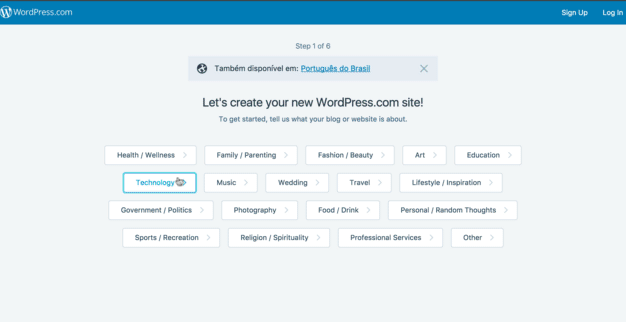
In the future, as the customizer becomes even more powerful, I’m imagining users will be able to re-arrange and resize elements on the page, before swiping their credit card.
But, WordPress.org? A very different experience for new users, especially those new to website ownership.
If someone’s directed to use self-hosted WordPress, browsing to our little community on the web, and they click download WordPress the struggle of identity becomes even more apparent, both technically and branding wise:
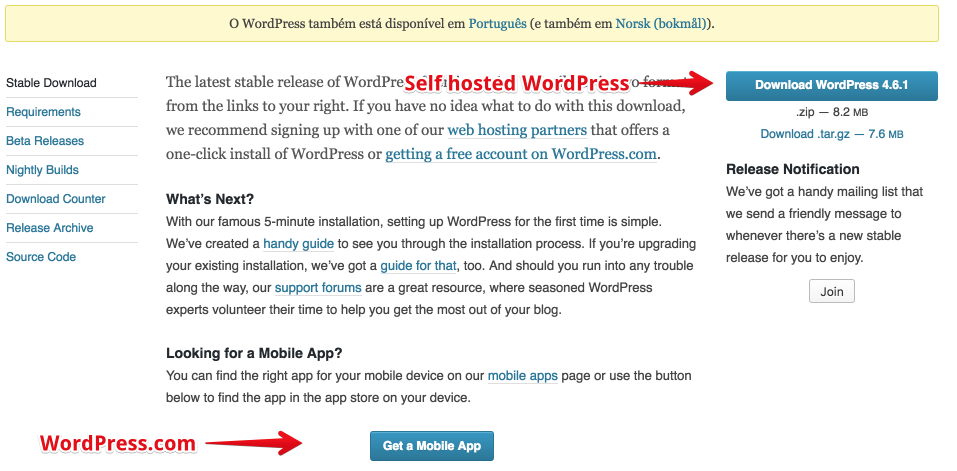
On the right, we can download WordPress right to our desktop…but then what? What does a new user do with this ZIP — or God help them — .tar.gz file?
“Well, maybe I’ll download that mobile app instead?” they think. “Oh, what’s this, I’m creating on WordPress.com? What happened to my self-hosted WordPress site that gave me full-control?”
OWNING the experience

I recently switched back to owning an iPhone.
I was an early adopter, then I switched to Android for about 3 years, and I really enjoyed my time with it. The integration with Google Apps (all apps, not just the editor tools) was great. It was working with all of the other apps in the ecosystem, that became the challenge. Even big name apps were slow, clunky feeling, and constantly chewing through my battery. I’d reset my LG G3 at least 3 times a day to keep memory clear.
Now, I use my iPhone 7+ more than my iPad around the house. The experience is smooth, I don’t worry about battery life or how many apps I’m running. I LOVE airdrop to my Mac, and the integration of apps from mobile to desktop. I also don’t have a bunch of carrier bloat running in the background.
Putting WordPress.com aside for a moment, self hosted WordPress is at odds with itself, with no single experience:
- Consultants can build WordPress in infinite ways.
- A plethora of web hosts can control default plugins or themes.
- Plugins like page builders, alter the experience of the WordPress customizer — or disregard it altogether.
Learning WordPress isn’t easy, and throwing all of these other variables at a new user isn’t helping.
Before the purists rage at me, I’m a purist too, and I love the fact that WordPress is open-source and we can do anything with it. It’s my desire to have an alternative to platforms, and keep waving the WordPress flag.
I’m both worried and excited for the future.
The future of the (new) WordPress experience
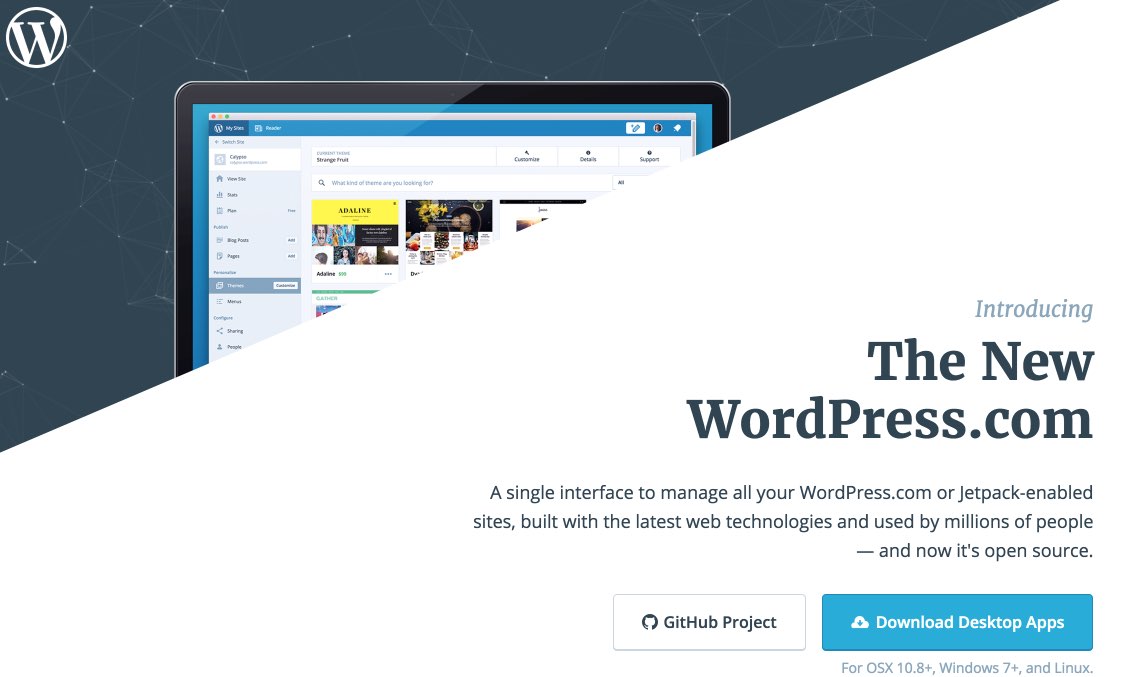
The future of WordPress is right in front of us with the Calypso project (arguably Jetpack) — more on that soon.
It’s no doubt that the growth and popularity of WordPress has come from the self-hosted version. Through power-users that can wrangle the installation of a web app onto a web host, and through consultants like myself — and probably you — building services businesses around WordPress.
There’s massive opportunity removing the friction of downloading a file to the desktop, and booting up your fresh new self-hosted WordPress website.
Why the FlyWheel acquisition of PressMatic makes sense
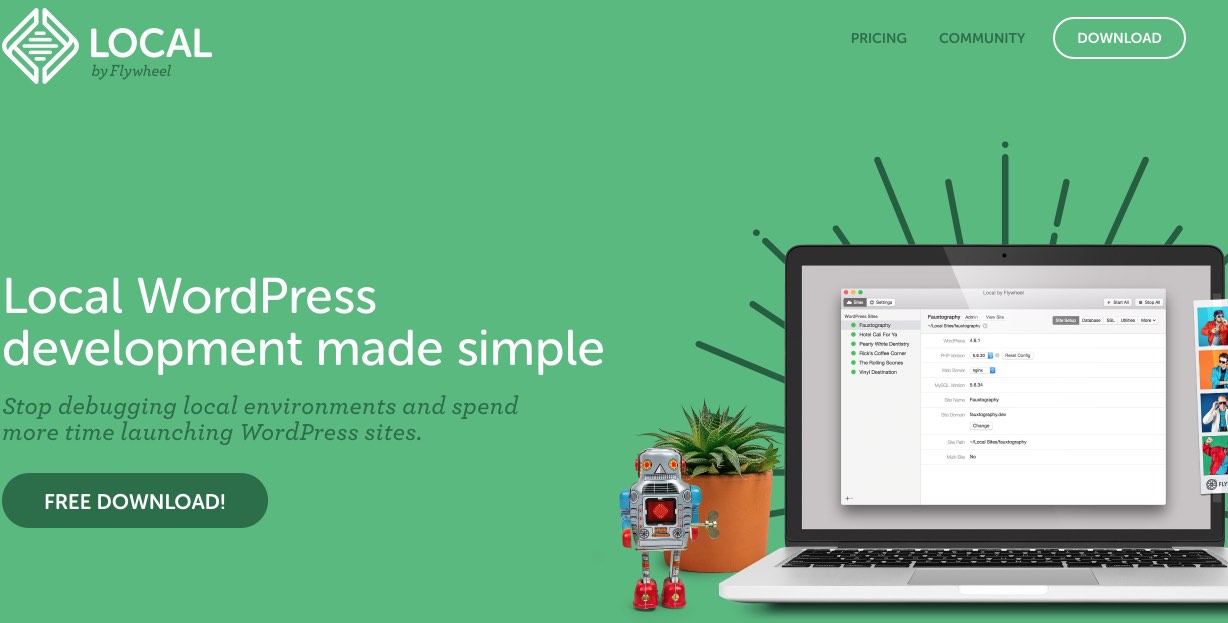
Owning an app like Pressmatic (now Local), especially when it’s owned by a web host, removes that friction of self-hosted setup.
- There’s no more need to download the ZIP file locally, they can deliver it to you through the app.
- There’s no more need to figure out FTP or control panels, you deploy it right from the app.
- There’s no more need to be online or deal with lag while building a website, you do it right from the app.
This is the next frontier to experience WordPress for a new user.
I think it’s going to be tricky to see how Matt & Automattic deal with this type of site creation experience, self-hosted vs. .com, in an app-like experience.
Picture this: Instead of downloading the ZIP file, you download an app, which boots you into a similar .com onboarding experience. You select your genre, layout, and theme then design it all in a super-fast native app. You can stop half-way, close your laptop lid, have lunch, come back and keep on designing without worrying about timeouts and WIFI. When you’re ready to go live, you pick which web host you want to upload to.
Oh, by the way, smart companies already have their own experience, see: Rainmaker.
A touch of nirvana, a touch of controversy.
In the short-term, they could affiliate link to web hosts, and a user could choose which approved web host has been integrated in the app. Surely to cause outrage from consultants and web host owners alike. Then there’s making the choice between .com, and the fallout that might cause with consultants. Of course, perhaps that type of client is best suited to a hosted platform to begin with.
Either way, for me, that’s where Calypso should (might?) be heading, if we’re to have some form of controlled, non-fragmented experience of WordPress, like the iOS’es of the world. There’s a whole ‘lot more to consider, but an app-like experience to booting up a WordPress site is coming, nay, it’s here.
The new question is wether or not that comes to self-hosted through the leadership of Automattic, the core team & contributors, or from web hosts.
The Flywheel acquisition of Pressmatic is smart. For one, they get a tool to help their consulting clients, a huge boon to their growth. Second, they get a direct-to-desktop app experience of the future, aiding in onboarding new users.
I love Pressmatic, you can watch my unboxing of it here. It’s my hope, even with my rocky experience with their hosting and support, they continue to improve the product over time, not just absorb it into their own ecosystem.
Then again, I can’t fault them, it’s the future.
What are your thoughts on an app-like experience for building and launching WordPress websites for .org?
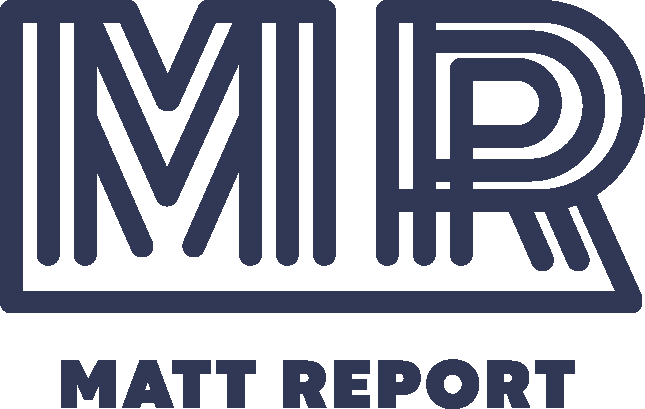

Leave a Reply